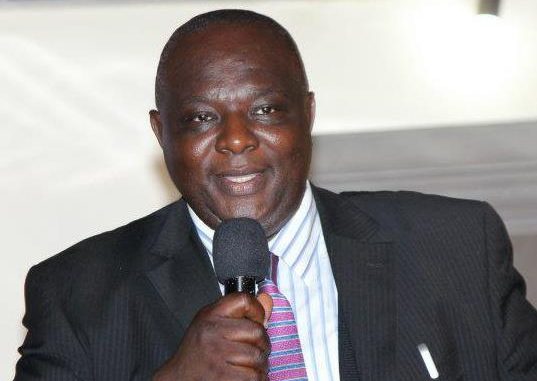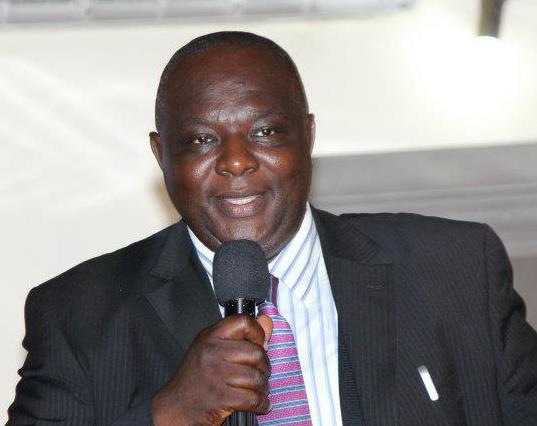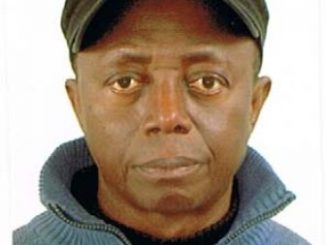
Strategic Media & Development Communications Unit :
Discussions relating to the onslaught of Ebola in Sierra Leone has thus far been preponderantly political, especially amongst the chattering classes. The incidence of the virus located in the South Eastern part of the country lend itself to a host of conspiracy theories not least being that this scourge was deliberately intended to wipe out opposition to the sitting government whose political base and strongholds are more generally accepted to be found in the North and North West of the country.
An extant dichotomy was thus raised between the South and South East versus the North and North West. The disparities in their standards of living and the cultural differences, if any exists in such stark contrasts as intimated, were overplayed as immutable factors for the government to yield to the scourge rather than attempt to quell its virulence. To the untrained hear, this diatribe that sought to drive a wedge between the peoples of this country, albeit on political lines was doomed to fail because of the exigency of the situation rather than due to a lack of evocation on their arguments.
The unrelenting politicization of the onslaught of Ebola in the country reflect a lack of a vociferous and inspired political opposition rather more deeply than is imagined. It does not in any way show that people on the other side of the fence cared any better than the rest of society. In the event, it may be better placed to accept that no one can claim care and empathy more than another, because by the very definition of nationhood, there must be an acceptance of good in all, even in the worst of us.
How far should this plague be allowed to obstruct rational thinking is for now only a matter of pure conjecture. The game-plan is easily discernible. The spread of the virus makes for easy fodder by those opposed to the government. It is merely an excuse to blame the governing classes more than they blame the system upon which that governance rests. No one asks the basic questions that u=ultimately lead to the truth. Questions like what would have happened if another government was in place. In some respects, there is an untimely doom in such prevarications. Another government would have handled this better or worse but the truth remains that another government would not have prevented it. The allusion was made the other day in an anecdotal case scenario. A thief walks into your house but meets another thief already there, in action stealing your valuables. One of the thieves called in the police. Do you blame the thief for calling the police or would you rather accept that your house as made vulnerable to thieves in any event?
“A plague o both your houses,” Shakespeare is known to have heaped on the feuding families whose unrelenting anger led to the deaths of Romeo and Juliet. So it is a case of misplaced anger that would deflect efforts from fighting the scourge of Ebola to concentrate on the political fallout of the outbreak. It would have been utter foolishness for government to allow itself to have been waylaid in such a manner.
It is a mark therefore of the astuteness of leadership that the President Dr Ernest Bai Koroma has shown so far in how he has handled the issue. Late a start does not allow for a stark disregard of concerted effort. The critics who felt that nothing short of a Presidential visit to the epicenter would quell the spate of the disease would never have grasped the deluge of advice and information made available to the Head of State and from which vantage position he had to act, and act determinedly by the declaration of a state of medical emergency and executive directives to contain and quarantine whole areas in order to manage the virus. No one would accuse His Excellency of not taking decisive action but then again, those who do oppose his acts would be opposed to anything he does even when the net result or outcome is beneficial to the interests of the nation.
An interesting take on the socio cultural implications of the virus was delivered handsomely by Mohamed Gibril Sesay, erudite former lecturer in sociology in his expatiation of the concept of soutora as a rite mandated by Islam. The cleansing rituals, the need to handle the passing of a loved one with dignity and the shame imposed on the dead by the nature of the Ebola virus takes the whole argument into another realm, outside of politics but engrained in the cultural and religious dissipation of our communities.
Gibril Sesay outlined in such clear terms, the dichotomies dispersed by the rush to efface the virus as fundamental prerequisite for its engagement, a digression from the stigmatization or in a more pluralistic sense, the degrading politicization of the disease, moving the entire callousness of its hitherto political undertones to mere rhetoric. In furthering his arguments away from the political realm, Gibril Sesay draws attention in part to the evasiveness of ephemeral audiences or otherwise temporal theatres to lay bare the gendered nature of the affliction and its virulence. Women have suffered more than men and given the demographics of our cultural settings, he asked rather intimately whether that disparity in any way overplays the importance of women in the cultural or traditional settings of rural living.
Moving further away from politics is the preponderance of medical informatics laid bare to the leadership. All intents and purposes, the Ebola outbreak started out as a disease that would have lend itself to normal practices of care giving by a docile patient or dormant disease eating up its host not needing to escape. The reverse is now known to be true.
The initial decision to move patients to Kenema for treatment at the Lassa fever facility was hinged on the efficacy of the regimes at that facility and the attitude by our medical staff including WHO experts was that this virus would succumb to scientific research under controlled laboratory environments. Our culture of dealing with our dead in that unfearing, washing and as Gibril Sesay posited, soutora-ed manner, our love for the dying in that solemn touching and relenting attachment inveigled in our rituals were never a part of that consideration., The failings of the laboratory style attention to detail was therefore predictable but largely ignored. The faults were in the system and not in individual and by extension, the logical conclusion has to be that whatever the political dispensation, this virus would have played itself out the very same way.
Needless therefore to say that the politicization of the Ebola outbreak provides food for thought and an outlet for postulations by the chattering classes in so much a refreshing way as to superimpose a valid engagement for them in the sufferings of the ordinary people who are at the thrust of this outbreak. The socio-economic classes in the thick of this scourge are far removed from the well to do, TV watching and internet social media hopping commentators who would rather blame the rain on the government than see this for what it is. Patient zero (the first person known to have contracted the virus) for instance has been alluded to a two year old boy, begging the question of whether he ate an diseased animal, played with a bat or ate contaminated fruit. In any of those ramifications, patient zero was nonetheless innocent of this grave plague unleashed in the West of Africa. Sierra Leone Guinea and Liberia are at the center of the spread and for that, reason, the stigma is shared though not halved or even quartered.
This is nothing like politics. There are no conspiracy theories here, and as the British Police would say, come on chaps, lets go home, nothing to see here. Only that in this case, going home would always be with a heavy heart, our people are still dying. Politics or no politics, Ebola is real.





Leave a Reply